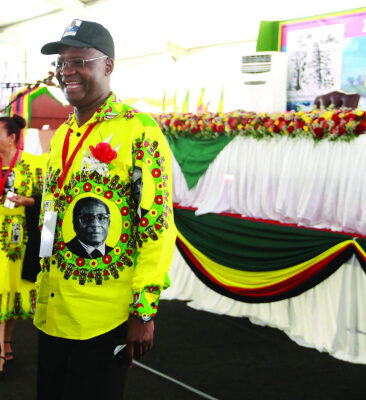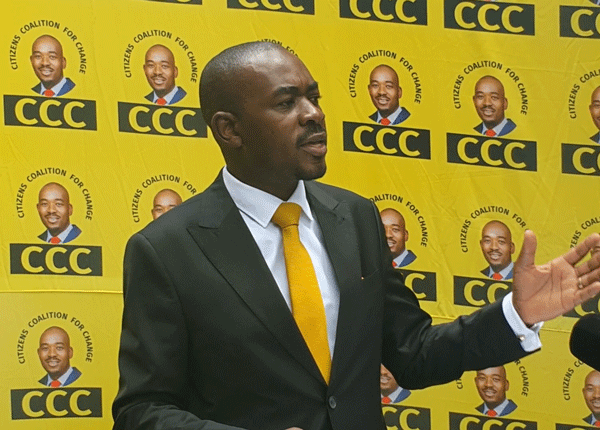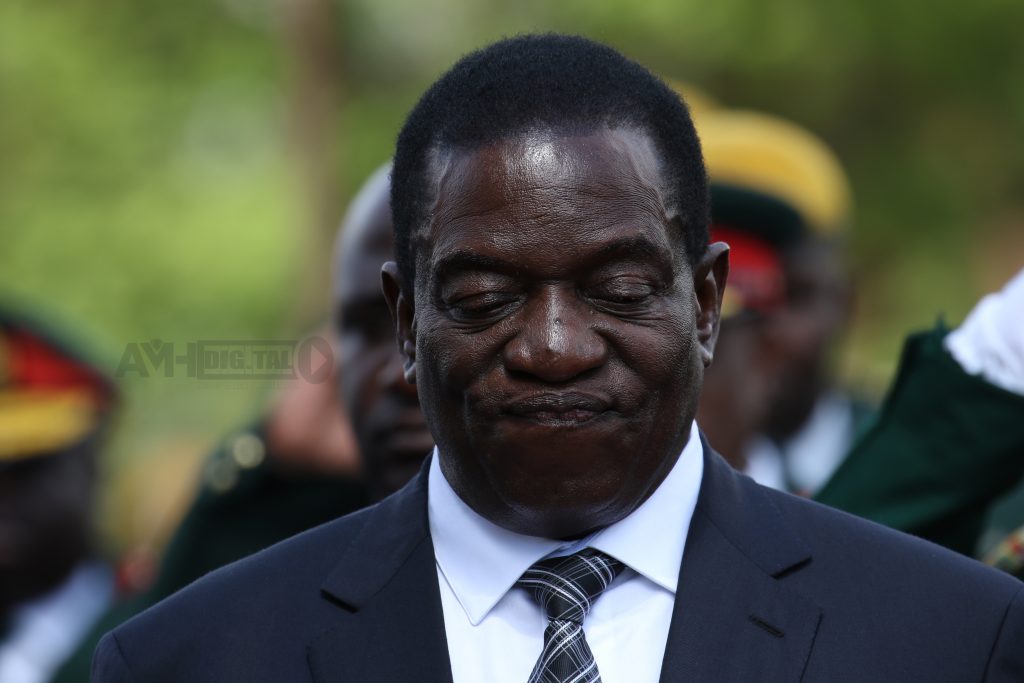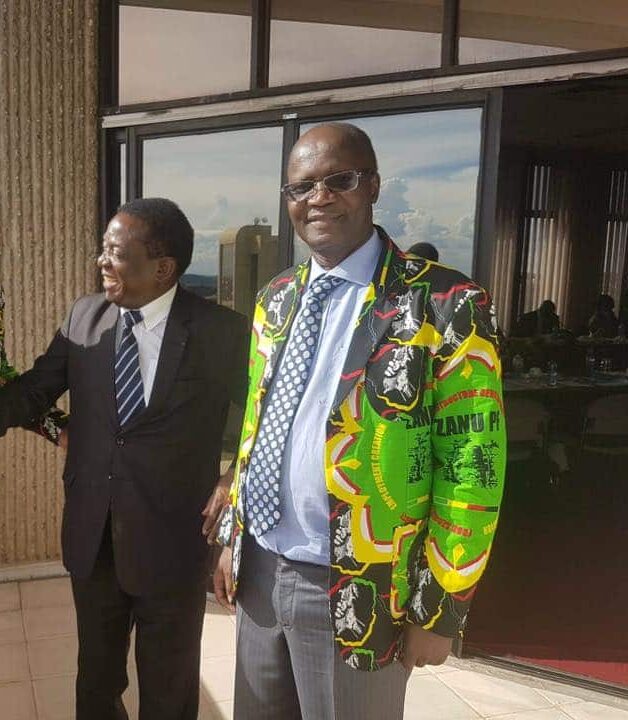
Mike Chipere IN this paper, I will respond to Trevor Ncube’s op-ed titled Zim’s future belongs to the youth, but are they ready? which was published in the NewsDay of April 11, 2022.
In the opinion piece, Trevor, who is a Zimbabwean entrepreneur and chairman of Alpha Media Holdings (AMH), raised serious doubts about Citizens Coalition for Change (CCC ) frontman Nelson Chamisa’s capacity to lead Zimbabwe.
His opinion provoked a lot of anger from CCC supporters, the majority of whom claim to be in the opposition to defend freedom of expression. Worse still, the educated segment of our population made scathing and condescending remarks not only about the content of the opinion piece, but Trevor’s character as an individual.
Read More…
- Zim’s future belongs to the youth, but are they ready?
- Turning from the regime while gaslighting the opposition
Unfortunately, I do not sufficiently know Trevor to comment about his personal reputation. Former Cabinet minister Jonathan Moyo shot him down with the following comment: “In your self-righteous piece you trash everyone, who the hell do you think you are? Who cares about your crazy political views? Are you the paragon of virtue? Get off your high horse, serve your crumbling AMH, pay your abused workers fairly!” I appreciate there might be a backstory to his rebuke but this signifies a very serious wider Zimbabwe problem, an inability to agree to disagree.

A writer by the name Takura Zhangazha recently made a strong argument that Zimbabweans are a highly-opinionated people and I totally agree with him. I recently came across an old terse exchange between Nehanda Radio editor Lance Guma and Oxford University scholar by the name Blessing-Miles Tendi.
The latter demanded nuance and rigor over uncritical verbatim of vitriolic MDC response to an article that he wrote. And for that, he received a contemptuous retort which does not leave anyone speculating about the newspaper editor’s political affiliation.
- Chamisa under fire over US$120K donation
- Mavhunga puts DeMbare into Chibuku quarterfinals
- Pension funds bet on Cabora Bassa oilfields
- Councils defy govt fire tender directive
Keep Reading
These observations might seem mundane to some, but intolerance is one of the root causes of most of our problems. A typical example being, the Gukurahundi genocide, which the leadership of Zanu PF inflicted on Ndebele-speaking people, for simply preferring political ideas that differ from theirs.
The academic snobbery that I touched on in the first paragraph is perhaps the reason why Zimbabwean academics have not contributed anything that is of practical relevance to the long suffering people of Zimbabwe. Given that, it makes perfect sense that Trevor never couched his opinion piece in imported academic concepts that are inconsequential to all of us.
Most importantly, intolerance and bigotry explains the failure by Zimbabweans to see life beyond Zanu PF and an MDC faction recently renamed CCC. People who do not support either of the two parties have been shut out of the conversation about the future of the country by Zimbabwe newspapers and online media houses which are to a very large extent partisan.
🔴#New #TalkingPaper"𝐖𝐞 𝐭𝐡𝐨𝐮𝐠𝐡𝐭 𝐭𝐡𝐚𝐭 𝐑𝐨𝐛𝐞𝐫𝐭 𝐌𝐮𝐠𝐚𝐛𝐞 𝐰𝐚𝐬 𝐛𝐚𝐝, 𝐛𝐮𝐭 𝐬𝐚𝐝𝐥𝐲 @edmnangagwa 𝐡𝐚𝐬 𝐬𝐡𝐨𝐰𝐧 𝐚𝐧 𝐚𝐦𝐚𝐳𝐢𝐧𝐠 𝐝𝐞𝐠𝐫𝐞𝐞 𝐨𝐟 𝐝𝐨𝐢𝐧𝐠 𝐭𝐡𝐢𝐧𝐠𝐬 𝐰𝐨𝐫𝐬𝐞 𝐭𝐡𝐚𝐧 𝐌𝐮𝐠𝐚𝐛𝐞"- @TrevorNcube
📹BizNews pic.twitter.com/XdbPHT9lDD
— NewsDay Zimbabwe (@NewsDayZimbabwe) March 26, 2022
If Trevor was not the owner of NewsDay, no one besides The Herald was going to publish his criticism of Chamisa.
The partisan media outlets, commentators and political scientists who fail or deliberately refuse to see the identical ideological underpinnings of Zanu PF and CCC are propagating the “Chamisa Chete Chete” fallacy and branding as neutral (and) everyone who chooses not to support any of the two parties.

I do not fault Trevor for not having any faith in Chamisa’s leadership and ability to turn Zimbabwe into what it should be.

Firstly, renaming an MDC faction is not evidence of strategy or ideological clarity. The absence of strategy and ideological clarity explains the reason why the main thrust of his recent parliamentary and council by-election campaign message was basically “vote for me I will be better that Emmerson Mnangagwa”. Surely, this cannot be the basis upon which Zimbabweans can make a voting decision.
🔴#New #TalkingPaper"𝐍𝐚𝐭𝐢𝐨𝐧𝐚𝐥 𝐢𝐧𝐬𝐭𝐢𝐭𝐮𝐭𝐢𝐨𝐧𝐬 𝐡𝐚𝐯𝐞 𝐛𝐞𝐞𝐧 𝐜𝐚𝐩𝐭𝐮𝐫𝐞𝐝"- @TrevorNcube Read more: https://t.co/W5n0edE1ms pic.twitter.com/6quBNng9Ct
— NewsDay Zimbabwe (@NewsDayZimbabwe) March 27, 2022
How would this be any different to the November 2017 coup, where not only Trevor but many Zimbabweans enthusiastically supported then Vice-President Emmerson Mnangagwa purely on the basis that he promised to be better than then President Robert Mugabe.

The second message was his promise that white people will flock into Zimbabwe as soon as he gets into power. His oblivion to the ramifications of neo-colonialism is astounding.
Colonialism is not an old political economy academic debate but existential. When he was called out about this, he said he would never sell Zimbabwe to foreigners. Once again, he couldn’t see how these two assertions turn into oxymorons.

In another political address, he promised to respect property rights, by this, he is alluding to the property rights of white settlers, but he doesn’t bother to address the historical injustices associated with the property in question. If the property rights of white settlers is sacrosanct, how about the rights of cheap labour and its descendants, land dispossessions, health and safety deaths in the mines, chibharo etc.
To make matters worse, Chamisa and his CCC party never apologised for inviting economic sanctions on Zimbabwe, not only that, but begging an imperial power to force their own government to compensate white farmers without any regard for African victims who were dispossessed of their ancestral lands is yet another strong evidence of how coloniality completely took over a black person’s mental universe.
Their conception of property rights does not take any cognisance of the unequal and racist power structures embedded in Roman Dutch laws which they eagerly ape.

Kent University law lecturer Alex Magaisa responded to Trevor’s article and asked him to explain why he has a low opinion of Chamisa’s well-respected deputies Tendai Biti and Welshman Ncube. Biti is a highly-esteemed former Finance minister who promulgated the adage “we eat what we kill” in reference to the fact that the then unity government could only spend what it earned or expected to earn.

Sadly, his Zimbabwe supporters do not realise that by that — his only difference with current Finance minister

becomes the fact that he is a more pragmatic man, but other than that, they are both bound by neoliberalism and its disastrous impact on most of sub-Saharan Africa, Latin America and South Asia.
Secondly and importantly, I do not understand why the International Monetary Fund’s paternalism continues to be tolerated. The implication of the “we eat what we kill” adage is that Africans are inherently not trustworthy, they have to be monitored like little children and punished for a budget deficit, but it’s alright for the United States of America to accrue one of the largest budget deficits in the world.
🔴#New #TalkingPaper"𝐀 𝐬𝐭𝐨𝐫𝐲 𝐰𝐡𝐢𝐜𝐡 𝐢𝐬 𝐭𝐫𝐮𝐞 𝐚𝐛𝐨𝐮𝐭 𝐙𝐢𝐦𝐛𝐚𝐛𝐰𝐞'𝐬 𝐞𝐜𝐨𝐧𝐨𝐦𝐲 𝐢𝐬 𝐭𝐡𝐚𝐭 𝐦𝐚𝐜𝐡𝐢𝐧𝐞𝐫𝐲 𝐚𝐧𝐝 𝐞𝐪𝐮𝐢𝐩𝐦𝐞𝐧𝐭 𝐡𝐚𝐬 𝐧𝐨𝐭 𝐛𝐞𝐞𝐧 𝐫𝐞𝐧𝐞𝐰𝐞𝐝 𝐬𝐢𝐧𝐜𝐞 𝐭𝐡𝐞 𝐞𝐧𝐝 𝐨𝐟 #𝐔𝐃𝐈" – @TrevorNcube
📹BizNews pic.twitter.com/NOn6pVe6oU
— NewsDay Zimbabwe (@NewsDayZimbabwe) March 26, 2022
Thirdly, Biti and the CCC are arguing that Zimbabwe’s spiralling inflation can only be contained by dollarisation. This symbolises a misunderstanding of the nature of money — in particular the idea that money is trust. If Zimbabweans were in a position where they had trust that in the next six to 12 months, the Zimbabwe dollar will be good to buy the same basket of goods and services as it does today, there would be no need for the US dollar.
Sadly, it is highly-improbable that Zimbabweans will ever have that trust as long as Zanu PF is the issuer of Zimbabwe money. By promising to reintroduce the US dollar once they are in power, the opposition will effectively be subjecting us to the whims of the US monetary and fiscal policy but at the same time, this would demonstrate CCC’s lack of faith in its ability to re-establish public trust.
This begs the question, why should Zimbabweans vote for a party that wants us to be beholden to the monetary and fiscal policy of the USA which is inflicting unmitigated economic sanctions on the long suffering people of Zimbabwe and yet the country barely imposed such harsh measures on Apartheid South Africa.
1. I am not here to motivate nor give hope to anyone. I am not Jesus. I have been around for a long time to know what needs to happen. Removing ZANU PF is not child's play. They have State machinery and tax funded pple whose job is to retain power. They don't sleep…
— Freeman (@freemanchari) April 19, 2022
Some of Chamisa’s advisors have problematised “technology” as CCC’s main handicap, advising the party to ditch paper notebooks, employ professional fundraisers and employ permanent staff etc. This is much like hotwiring a dead car ignition system as I used to do as a teenager in principle it is no different to the algorithms of hate which got Donald Trump elected into power in the US.
In addition to the fanciful technocentric perspective which is being sold as a strategy, the CCC and Chamisa in particular has on several occasions spiritualised the Zimbabwe problem. My hope is that Zimbabweans will not be gullible enough to believe that prayer and fasting at the mountains will put out the flames that are engulfing the country or compensate for a complete lack of leadership and strategy.
CCC has much work to do, dismissing criticisms as misinformed Zanu PF stooges is retrogressive, but luckily for them, the polarised Zimbabwe media is incapable of horning into the public, the dangers of worshipping “personalities” over substance. It is very likely that I will be labelled a Zanu PF apologist but just to be clear, I have no evidence that could conceivably compel me to support Zanu PF, CCC or any of the existing political parties in Zimbabwe.
Surely, Trevor Ncube cannot be the only Zimbabwean who thinks that Zimbabwe does not need another Zanu PF with a different name. My only beef with him is that I believe the future of Zimbabwe belongs to all who live in it.
- Mike Chipere is a postdoctoral scholar affiliated with the Human Economy Program housed at University of Pretoria. Ideas expressed in this article are his and do not represent any organisation.











